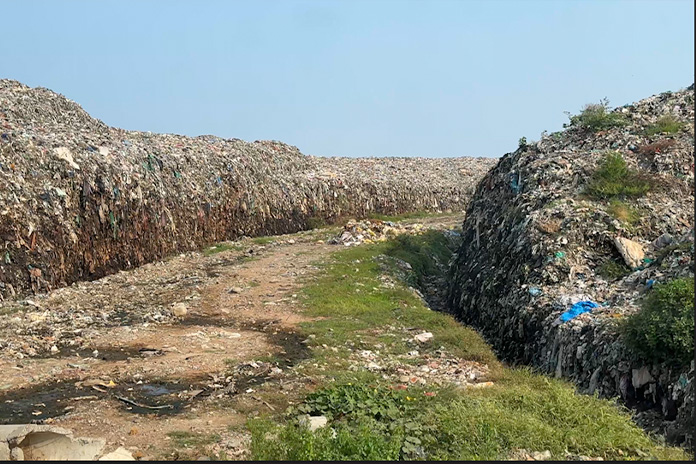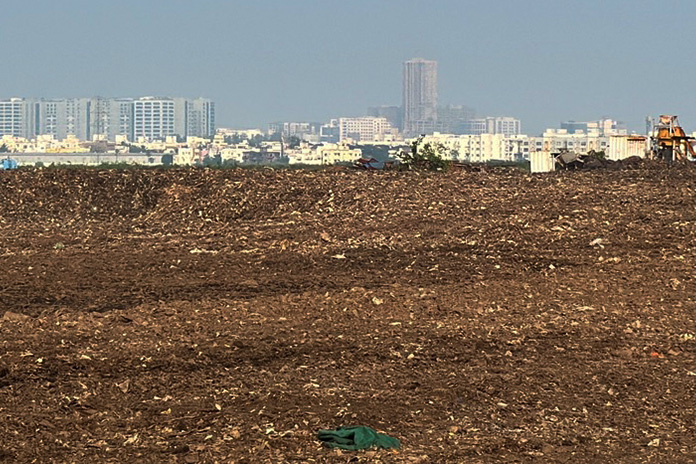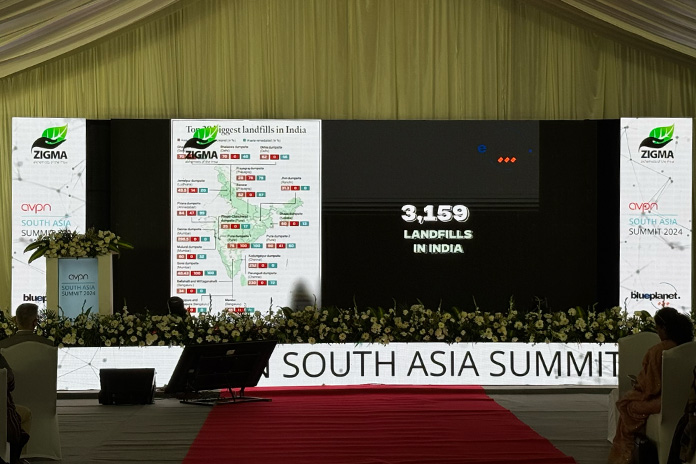
AS the wind picks up pace, a mist of fine dust particles rises and veils the horizon at Perungudi.
The sun casts a muted red hue over the cleared landfill in Chennai, Tamil Nadu, India.
Where once 15-metre-high piles of rubbish competed with the buildings on the horizon for attention, there now lies land with potential to be used for various activities.
Where birds and scavengers were regular denizens of the area, today, the cleared land is quieter, save for some heavy clean-up equipment and the occasional stray dog and small flocks of birds searching for scraps.

Article Follows After The Video.
Cleaning Up The Mess
In a move to remedy its past indiscretions, the Chennai state government embarked on a project to clean up its landfills.
The 91-hectare Perungudi site is located in the Pallikaranai Ramsar site, a storm water runoff for the surrounding areas in Chennai before parts of it were turned into a landfill four decades ago.
Ramsar sites are wetlands of international importance designated under the Ramsar Convention of 1971. There are 85 Ramsar sites in India. Sungei Buloh Wetland Reserve, in Singapore, is a Ramsar site.

ALSO READ: Michele De Lucchi’s Design Trends
Keeping The Planet Green
Singapore-based integrated waste management platform, Blue Planet was tasked with biomining and disposing the waste in Perungudi, in 2021, and diligently processed 1,000 tonnes daily, recently completing the job ahead of schedule.
In clearing 1.73 million cubic metres of municipal solid waste on the 39ha portion it was assigned, Blue Planet retrieved 20% of refuse derived fuel and 10% recyclable materials like paper, wood, cloth and stones.
There were talks of creating an eco park in its place, but that was vetoed, in favour of returning the site to its original role as an important marshland to manage the natural flow of water.
By cleaning up the landfill, it also reduced the avian population that would hang around the debris, threatening potential bird strikes at the airport runway nearby.
There are 3,159 landfills in India, the most populous country on the planet with over 1.4 billion people.
Urbanisation and the rising middle class contribute to the amount of waste generated.
Showcasing At AVPN South Asia Summit
Blue Planet’s efforts were on show at the recent AVPN South Asia Summit in Chennai, where an afternoon at the Perungudi site included discussions in a huge air-conditioned white tent, with a red carpet leading into it, and tours of the cleared site.
Quite out of sync with what the Perungudi dumpsite represents, the opportunity to showcase positives from a landfill were hard to turn down, in light of India’s decade-old Clean India Mission (Swachh Bharat Abhiyan).
From benches made of retrieved rubble to rudimentary sculptures in stone enclosed in wire and reinvention of spaces with potentially more sustainable outcomes, the successful conversion of the Perungudi site will result in more such endeavours to retrieve opportunities from discarded materials.

The annual AVPN South Asia Summit addresses the social investor network platform’s various causes, including education, climate change, healthcare and gender issues.





















